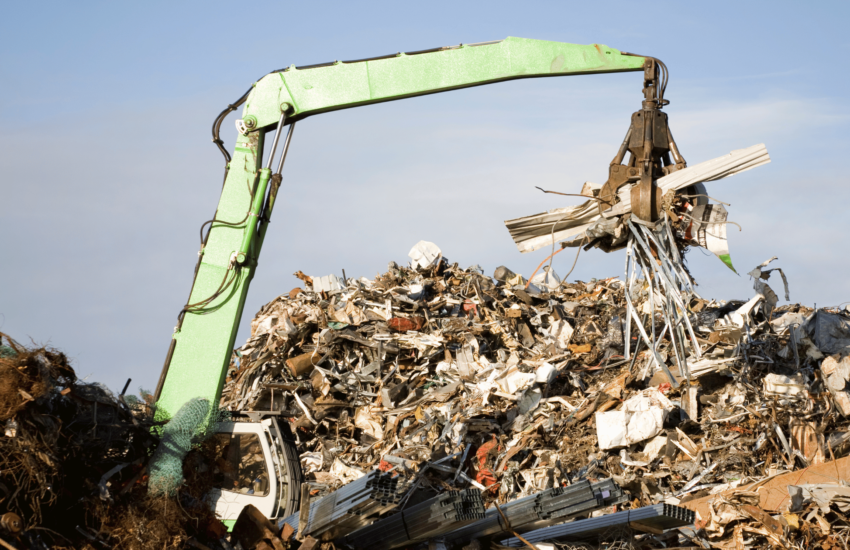Introduction
In a landscape where environmental consciousness and sustainable practices are gaining momentum, metal recycling companies in India stand as vanguards of change. The significance of metal recycling transcends mere environmental stewardship; it extends into economic growth, resource conservation, and societal well-being. As the world charts a path toward sustainability, India’s role in metal recycling becomes increasingly pivotal. Let’s delve into the multifaceted benefits that metal recycling offers to India’s economy, environment, and future.
Economic Empowerment through Metal Recycling
Metal recycling serves as a catalyst for economic growth in India:
Resource Conservation and Reduced Dependency: The recycling process diminishes the reliance on raw materials, contributing to resource conservation. India, by optimizing metal recycling, reduces its dependency on virgin metals, thereby fortifying its economic resilience.
Job Creation and Industry Development: Metal recycling enterprises create job opportunities across various strata of society. These companies fuel the economy by fostering an entire industry around recycling, from collection to processing, generating employment and revenue streams.
Cost-Efficiency and Energy Savings: Recycling metals consumes significantly less energy compared to mining and refining virgin materials. Through cost-efficient methods, metal recycling companies contribute to energy savings while boosting the bottom line.
Environmental Guardianship: Mitigating the Impact
The environmental benefits of metal recycling in India are far-reaching:
Reduced Pollution and Greenhouse Gas Emissions: Metal recycling minimizes pollution associated with mining activities and industrial processes. By reducing the need for extraction, it curtails environmental degradation and greenhouse gas emissions, thereby mitigating climate change impacts.
Conserved Natural Resources: Metal recycling is instrumental in conserving precious natural resources like ores and minerals. This conservation alleviates the strain on ecosystems and habitats impacted by mining activities.
Waste Reduction and Landfill Diversion: Recycling metal curtails the accumulation of waste in landfills. It optimizes waste management practices, extending the lifespan of landfills and mitigating the environmental hazards associated with excessive waste disposal.
Societal Progress and Technological Advancements
Metal recycling contributes to societal advancement and technological innovation:
Educational Outreach and Awareness: Metal recycling companies in India play a pivotal role in raising awareness about the importance of recycling. Educational initiatives and outreach programs foster a culture of sustainability, empowering communities to actively participate in recycling endeavors.
Technological Advancements and Innovation: The pursuit of efficient recycling techniques spurs technological advancements. Continuous innovation in metal recycling technologies enhances efficiency, reduces environmental impact, and fosters a culture of innovation within the industry.
Challenges and Opportunities
While the benefits of metal recycling in India are undeniable, challenges persist:
Infrastructure Development: Adequate infrastructure for efficient collection, sorting, and processing of metal scrap is crucial. Investment in robust infrastructure can amplify the benefits of metal recycling across the nation.
Regulatory Framework: Implementing and reinforcing robust regulatory frameworks can streamline recycling processes, ensuring compliance and accountability across the metal recycling industry.
Expanding Horizons : Enhancing Metal Recycling in India
In the realm of metal recycling, India stands poised at a crucial juncture, with immense potential waiting to be unlocked:
- Embracing Technological Innovations
Automated Sorting and Processing: Implementing automated sorting and processing technologies can significantly enhance the efficiency of metal recycling. By leveraging artificial intelligence and robotics, the industry can streamline operations, ensuring higher accuracy in sorting various metal types and grades.
Advanced Separation Techniques: Research and development into advanced separation techniques such as magnetic separation, eddy current separation, and sensor-based sorting can revolutionize the recycling process. These innovations enable precise metal recovery from complex waste streams, further optimizing resource utilization.
- Encouraging Circular Economy Practices
Collaborative Efforts: Encouraging collaboration between metal recycling companies, manufacturers, and consumers is pivotal in fostering a circular economy. Establishing closed-loop systems where recycled metals are reintegrated into manufacturing processes reduces the reliance on raw materials, completing the recycling loop.
Consumer Awareness Campaigns: Educating consumers about the significance of purchasing products made from recycled metals fosters a conscious consumer base. This awareness drives demand for recycled materials, creating a market pull that fuels the circular economy.
- Policy Advocacy and Government Support
Incentivizing Recycling Initiatives: Governments can provide incentives, subsidies, or tax breaks to incentivize metal recycling efforts. These measures can stimulate investment in recycling infrastructure and technologies, bolstering the industry’s growth while aligning with sustainable development goals.
Standardization and Regulation: Establishing standardized practices and regulations for metal recycling ensures uniformity and accountability across the industry. Robust regulatory frameworks can address environmental concerns, encourage compliance, and elevate the overall efficiency of metal recycling operations.
- Grassroots Engagement and Community Participation
Empowering Local Communities: Engaging local communities in metal recycling initiatives cultivates a sense of ownership and responsibility. Community-driven recycling programs, coupled with incentivized collection drives, bolster grassroots efforts towards sustainable waste management.
Skill Development and Training: Investing in skill development and training programs equips individuals with the expertise needed in the metal recycling sector. This not only fosters employment opportunities but also ensures the industry’s sustainable growth through a skilled workforce.
Conclusion: Paving the Path Forward
The journey towards maximizing the benefits of metal recycling in India involves a collective commitment from all stakeholders. By harnessing technological advancements, promoting circular economy practices, advocating supportive policies, and fostering community engagement, India can propel its metal recycling industry to new heights.
As metal recycling companies in India continue to innovate and adapt, their pivotal role in shaping a sustainable future becomes more pronounced. Each step taken towards enhancing metal recycling brings India closer to realizing its potential as a leader in sustainable practices, setting a benchmark for global environmental stewardship.
Expanding metal recycling initiatives isn’t just about environmental preservation; it’s about forging a path where sustainability intertwines seamlessly with progress, economic vitality, and societal well-being.
This ongoing journey towards a greener and more sustainable India through metal recycling serves as an emblem of commitment to future generations, ensuring a legacy of responsible resource management and environmental preservation.

